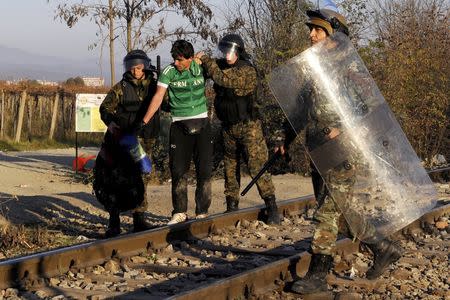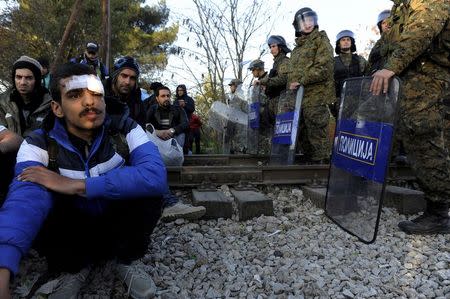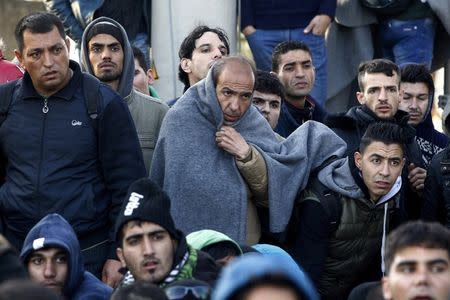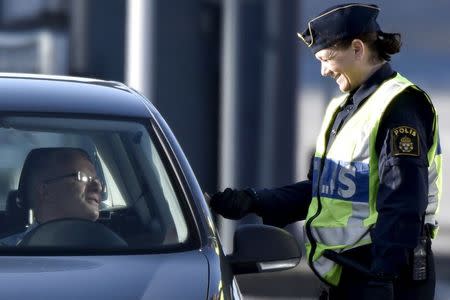EU states to agree tighter passport checks: draft document
By Francesco Guarascio BRUSSELS (Reuters) - European Union interior ministers are to agree on Friday to tighten checks at the external borders of the passport-free Schengen area to boost security after the attacks in Paris that killed 129 people, a draft document seen by Reuters shows. Ministers will agree to "implement immediately the necessary systematic and coordinated checks at external borders, including on individuals enjoying the right of free movement," the draft conclusions of their meeting says. The document reflects France's request to strengthen controls at the external borders of the 26-nation Schengen area, of which most EU countries are members, except Britain, Ireland, Croatia, Cyprus, Romania and Bulgaria. Citizens of Schengen countries have their documents visually checked by security forces when they leave or enter the area. The new proposal is likely to upgrade the controls so documents can be checked against criminal and security databases. The upgrade should be done by March 2016 and should entail "electronic connection to the relevant Interpol databases at all external border crossing points and automatic screening of travel documents." Interpol is the international police organization. Ministers will also agree to enhance controls at the most exposed external borders "by deploying rapid border intervention teams and police officers." The EU agency for border controls, Frontex, is to get a stronger mandate to contribute to the fight against terrorism, the draft text says. The six-page document to be agreed on Friday also urges a crackdown on terrorism financing, a stepping up of intelligence sharing and stricter rules on firearms.. Ministers will call for progress on sharing airlines travelers' data, the so-called Passenger Name Record (PNR) program. The plan has been long opposed by EU lawmakers on the grounds it would infringe people's privacy. Justice ministers, who will participate in Friday's meeting, plan to agree to proceed faster on applying common rules to EU citizens who join Islamic State militants in Syria or Iraq and then return to Europe. (Additional reporting by Jan Strupczewski; Editing by Robert-Jan Bartunek and Janet Lawrence)




